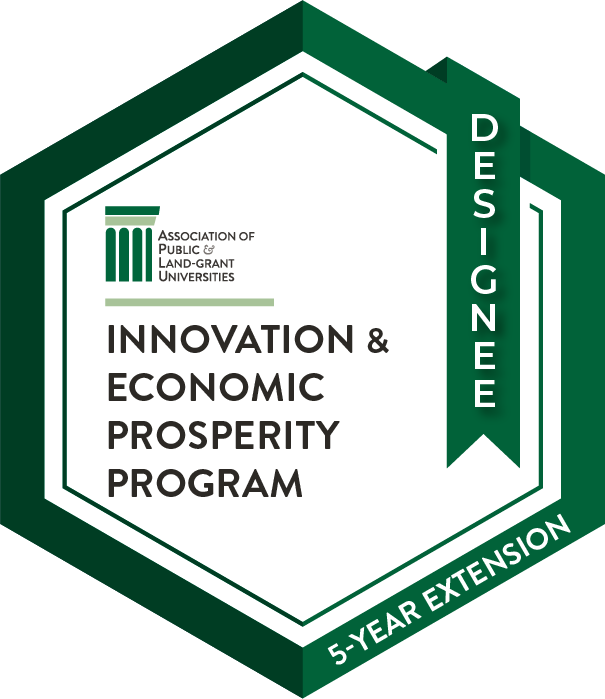Dan Moser, August 20, 2024
Nebraska earns extension of innovation, economic prosperity designation
The University of Nebraska-Lincoln’s status as an Innovation and Economic Prosperity designee has been extended for five years.
The program, part of the Association of Public and Land-Grant Universities, recognizes universities’ efforts to develop and sustain a commitment and strategy for regional economic engagement, growth and economy opportunity.

“This recognition really gets at the heart of the university’s land-grant mission,” said Sherri Jones, interim vice chancellor for research and economic development. “It’s acknowledgement of our efforts to engage with community partners across the state in building economic opportunities as we work to advance Nebraska, the nation and the world.”
Ryan Anderson, director of industry relations, said, “The Innovation and Economic Prosperity designation signifies UNL’s active and ongoing campuswide contributions to regional economic growth. It specifically recognizes cultivation of talent for the modern and future workforce, prioritization of innovation, and involvement in the advancement of place, realized through extension, public service and community engagement.
Connections with the IEP community, which has practitioners at 90 other U.S. universities, enables Nebraska to learn about novel approaches and programs, and to share the successes of UNL programs and activities that positively impact economic development in Nebraska, Anderson said.
One member of the review team said, “It is common knowledge that partnerships move at the speed of trust, and UNL demonstrated the importance of this approach in implementing its stakeholder engagement strategy.”
Another praised Nebraska for being responsive to changes in its regional economic climate.
“The IEP champions [at Nebraska] demonstrated their capacity to be agile while galvanizing all stakeholders to identify problems and strategize to implement solutions.”
The Association of Public and Land-grant Universities established its IEP program in 2013 to give universities an opportunity to better know, measure, tell and enhance their economic and community development impact while recognizing universities that demonstrate a “substantive, sustainable and institution-wide commitment to and strategy for regional economic development, growth and economic opportunity.”





